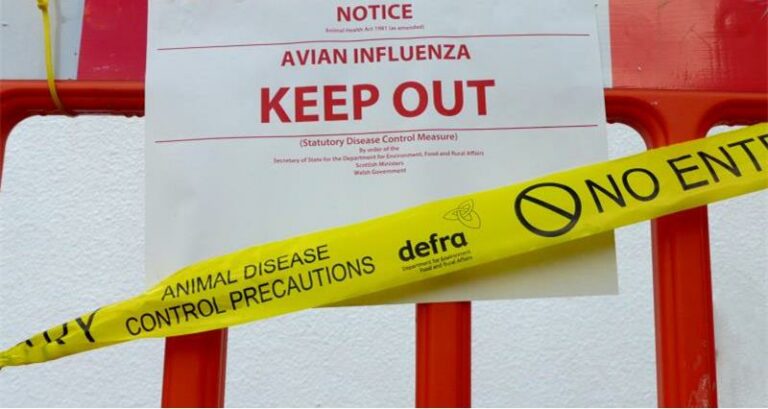Defra has increased the risk level of Avian Influenza to a commercial flock from ‘low’ to ‘medium’, after a third case of the disease was found in wild birds in Hertfordshire. This level can be mitigated to ‘low’ when good biosecurity measures are in place.
The Chief Vet Nigel Gibbens confirmed the zone will legally require all bird keepers in England to follow strict biosecurity measures, introduced as a precautionary measure.
Defra confirmed that it has no plans to put movement restrictions in place or carry out any culls.
The 13 dead wild birds found in Warwickshire were confirmed to have the Avian Influenza virus and it is believed the strain will be the same H5N6 virus which has been circulating in wild birds across Europe in recent months. Testing of the birds is ongoing.
The prevention zone requires all bird keepers in England to:
- Ensure the areas where birds kept are unattractive to wild birds. For example, by netting ponds and by removing wild bird food sources
- Feed and water your birds in enclosed areas to discourage wild birds
- Minimise movement in and out of bird enclosures
- Clean and disinfect footwear and keep areas where birds live clean and tidy
- Reduce any existing contamination by cleansing and disinfecting concrete areas, and fencing off wet or boggy areas.
Keepers with more than 500 birds are required to take extra biosecurity measures including restricting access to non-essential people, changing clothing and footwear before entering bird enclosures and cleaning and disinfecting vehicles.
Chief Veterinary Officer Nigel Gibbens said: “Following the latest finding of bird flu in wild birds in Warwickshire, we are extending our action to help prevent the virus spreading to poultry and other domestic birds.
“Whether you keep just a few birds or thousands, you are now legally required to meet enhanced biosecurity requirements and this is in your interests to do, to protect your birds from this highly infectious virus.”
NFU chief poultry adviser Gary Ford said: “It is vital that all keepers of poultry ensure they have the relevant biosecurity measures in place to protect their birds from any risk of Avian Influenza.
“The health and welfare of their birds is a farmer’s top priority and practicing good biosecurity is the best way of guarding them from this disease.”


